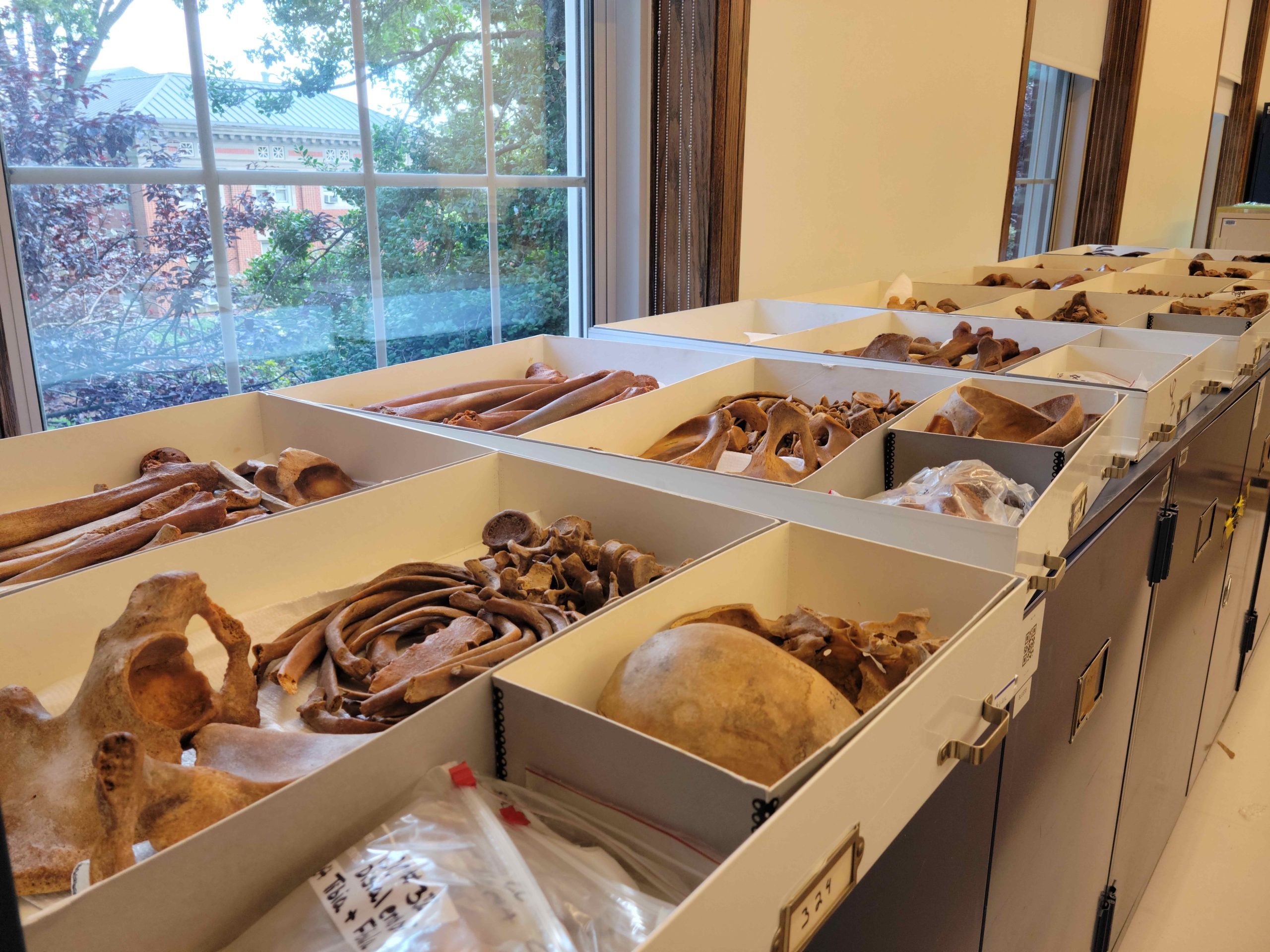
In 2018, Unlimited Restoration performed the contents relocation and restoration of significant medical, anthropological, and archeological collections for Howard University as part of our emergency response to the university’s steam plant infrastructure catastrophe. In 2022, URI was requested to pack, protect, and transport the contents of these collections back to the original laboratory from the temporary storage location.
The approximately 75 cabinets housed the incredibly significant W. Montague Cobb Human Skeletal Collection, as well as the Gambia and Nicodemus archeological collections. William Montague Cobb was a board-certified physician and a physical anthropologist. Cobb was the first African-American Ph.D in anthropology and his career both as a physician and a professor at Howard University was dedicated to the advancement of African American researchers and he was heavily involved in civil rights activism. As an accomplished educator, Cobb taught over 5,000 students in the social and health sciences during his lifetime.
The W. Montague Cobb Human Skeletal Collection was collected by Cobb between 1932 and 1969; the result of cadavers utilized in anatomy classes at Howard University Medical School. It is the largest collection of historical African American skeletal and dental remains and their associated mortuary records. The utmost care needed to be utilized to ensure the preservation of the collection in it’s current state.
First, the Unlimited Restoration team inspected the collections in their temporary storage location and developed a comprehensive protection and moving plan. No detail was overlooked, with the plan including the utilization of protective garments to be worn by those involved in the process to ensure DNA was not introduced into the collection.
Individual drawers were removed from each cabinet and the contents were secured in place using appropriate packing materials. Then, the securely wrapped drawers were reinstalled into their original cabinets for moving. The move itself included multiple forklifts and material lifts that needed to be utilized to get the cabinets reinstated into the second-floor laboratory in the Douglass Building. Once in the lab staging area, the process was then reversed and all packing materials were carefully removed. The cabinets were placed into their permanent positions with the drawers back into their respective cabinets.
The Unlimited Restoration team was honored to have been chosen to undertake the relocation of these important collections. While all contents-related work requires the utmost attention to detail, this particular process needed to be completed with not only an abundance of care but also reverence for the specimens included in the incredibly significant collections. We are proud to have been called back to relocate these collections back to their laboratory and for the trust of our partners at Howard University to get the job done.